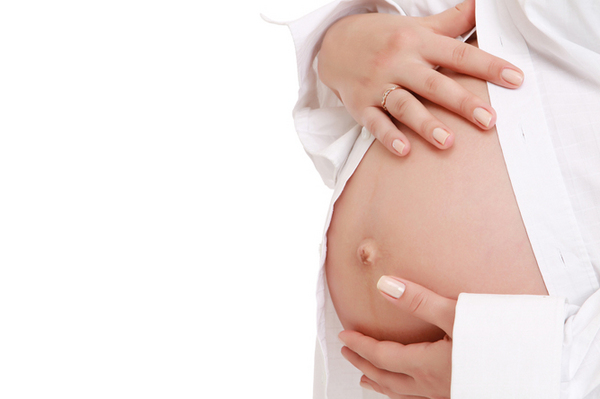Mother's Excess Baby Weight Hurts Offspring

Get the world’s most fascinating discoveries delivered straight to your inbox.
You are now subscribed
Your newsletter sign-up was successful
Want to add more newsletters?

Delivered Daily
Daily Newsletter
Sign up for the latest discoveries, groundbreaking research and fascinating breakthroughs that impact you and the wider world direct to your inbox.

Once a week
Life's Little Mysteries
Feed your curiosity with an exclusive mystery every week, solved with science and delivered direct to your inbox before it's seen anywhere else.

Once a week
How It Works
Sign up to our free science & technology newsletter for your weekly fix of fascinating articles, quick quizzes, amazing images, and more

Delivered daily
Space.com Newsletter
Breaking space news, the latest updates on rocket launches, skywatching events and more!

Once a month
Watch This Space
Sign up to our monthly entertainment newsletter to keep up with all our coverage of the latest sci-fi and space movies, tv shows, games and books.

Once a week
Night Sky This Week
Discover this week's must-see night sky events, moon phases, and stunning astrophotos. Sign up for our skywatching newsletter and explore the universe with us!
Join the club
Get full access to premium articles, exclusive features and a growing list of member rewards.
Gaining too much weight during pregnancy could hurt your baby later in life, new research suggests.
"We know now that events occurring early in life to fetuses have long-lasting consequences for the health of the adult person," study researcher Hagit Hochner, of Hebrew University of Jerusalem, said in a statement.
Researchers already knew gaining too much weight during pregnancy can cause overweight children and adolescents, but this study indicates that excess weight gain before and during pregnancy can have even longer-lasting health consequences. This new study found a direct correlation between this maternal weight gain tendency of offspring to be overweight, have high blood pressure and excess sugar and fat levels in the blood at age 32.
"In an age of an 'overweight epidemic' in the world, it is important to know the factors that are involved in leading to overweight and other health risks," study researcher Orly Manor, also of Hebrew University, said in a statement. "This understanding makes it essential that we identify those early windows of opportunity in which we can intervene in order to reduce the risks of chronic illness later in life."
The Mayo Clinic recommends gaining about 25 pounds to 35 pounds (about 11 kilograms to 16 kilograms) during pregnancy, if you start at a normal weight. If you start overweight, you probably shouldn’t be gaining more than 25 pounds (11 kilograms).
The research was published March 20 in the journal Circulation. The researchers analyzed clinical information on 1400 people born in Jerusalem between 1974 and 1976. The data included the weights of mothers before and during pregnancy and the weight of the child at birth. The researchers gathered current clinical data on the babies (now 32) including their weight, blood pressure and sugar and fat levels in the blood, plus measurements of body mass index and hip width.
The results of the research showed a clear influence of the excess pregnancy weight of the mothers on the their children, affecting in turn other risk factors in adulthood.
Get the world’s most fascinating discoveries delivered straight to your inbox.
Thus, for example, the children of mothers who gained more than 31 pounds (14 kilograms) during pregnancy were measured to have a higher body mass index than those who were born to mothers who did not gain more than 20 pounds (9 kilograms) during pregnancy.
Similar comparisons were made regarding sugar and fat levels in the blood, all indicating that those born to overweight mothers had detrimental characteristics regarding their health and life expectancies as compared to those born to mothers who had not gained excessive weight.
Additional factors could also have an influence on the phenomenon, including analogous genetic traits of the mother and child or environmental influences during pregnancy, and these would be worthy of further investigation, say the researchers.
 Live Science Plus
Live Science Plus











